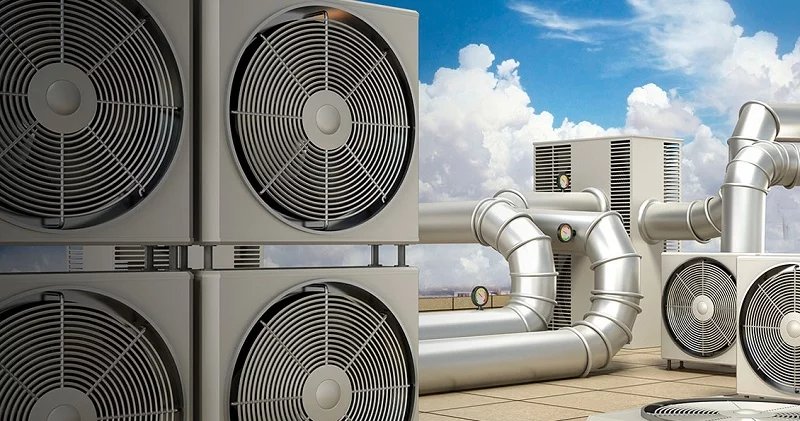
Many businesses know it is crucial to have the right HVAC (Heating, Ventilation, and Air Conditioning) systems in place in their offices and industrial environments. Not only can it prevent workplace hazards from happening, but it can also improve the overall quality of life for employees and benefit the company’s bottom line in the long term. Businesses opt to work with HVAC system solutions partners to find optimal setups.
In this article, we will define what HVAC is, explore some HVAC components, and finally, discuss what you and your business can expect from working with HVAC systems solutions partners. Having this information can help you make the most informed decisions.
HVAC stands for Heating, Ventilation, and Air Conditioning. HVAC systems are mainstays in controlling the temperature and quality of the air inside a building, and they are essential for businesses for the wellbeing of their employees and their products.
When businesses talk about HVAC systems, they are referring to several main components. For heating, components may include radiators, boilers, and heat pumps. For ventilation, components may include fans, ducting, and filters to remove pollutants in the air and maintain airflow. Finally, for cooling, components may include air conditioning and fans.
There are several types of HVAC systems solutions partners, which can range from HVAC contractors or service providers. The latter are companies that specialise in providing comprehensive HVAC services to businesses, from planning and installation to maintenance, repair, and optimisation.
If you are a business that has internal capacity to handle HVAC services, you may want to simply search for a supplier or retailer of HVAC components. These suppliers and retailers can provide the necessary equipment you will need to set up your own HVAC system, including a range of air conditioning units, coolers, ducting, air filters, heat pumps, fan blades and cables, and radiators.
If you are considering working with an HVAC system solution partner, you should consider the following in your vetting process to make sure they are an optimal fit:
Look for partners that have extensive experience in your business’ field or industry and location. You should make sure they have local experience because different countries and regions have different regulatory requirements. You should also make sure the partner has a proven track record of successfully completing projects.
When it comes to testing their areas of expertise, you should make sure they have a strong understanding of specific types of HVAC systems. For example, if you want to focus on cooling and ventilation, you should ensure they understand the technologies required for your industry.
Next, you should check the partner’s licensing and certification when it comes to installation of equipment. You should look for locally qualified installers that are knowledgeable and experienced, and you should find a partner that is compliant with local regulations.
Afterwards, you can determine whether the partner has the services that your business is looking for. Some HVAC solutions partners provide comprehensive services from planning and equipment installation to monitoring, maintenance, repair, and optimisation. Some only provide installation and maintenance services. You should find one that fits your needs, and you may consider working with multiple firms if you need additional services such as conducting energy audits and creating system designs to integrate into your environment.
Next, it is essential that you can pay for these services. Consider what the partner charges, and whether your equipment can be insured for up to years. Many HVAC systems solutions partners can provide detailed cost breakdowns and service charges estimates in advance upon request. Run these by your accountant to make sure they make sense. You can also do a cost comparison of different HVAC systems solutions partners.
Many businesses are rightfully concerned about the environmental impact of their HVAC systems. Consider the HVAC systems solutions partner’s focus and resources on energy efficiency and sustainability. Do they use high-quality, environmentally friendly materials, and do they optimise HVAC systems so that they can reduce energy consumption? Remember that using less energy is not only good for the environment, but it is also beneficial for your business’s bottom line.
Finally, you should see how responsive, professional, and knowledgeable the HVAC systems solutions partner is. What are their policies about response times? If you had an emergency, would you be able to contact them, and would they be able to provide you with the required repair or urgent services? If not, do they have a network of HVAC systems solutions contractors and equipment manufacturers they can refer you to?
HVAC systems are essential for businesses that run physical offices or have factories and industrial setups. If you want to look into implementing HVAC systems, you should have a strong understanding of what HVAC components are required for your projects and locations, what HVAC partners are and do, and how to ensure you select the best partner for your needs.
In a session that left students buzzing with fresh ideas and practical insights, Invertis University… Read More
At the 21st Shanghai International Automobile Industry Exhibition, which is surging with the wave of… Read More
Liverpool, UK—House of Spells and Comic Con Liverpool are once again collaborating to bring the… Read More
Introduction In India's booming EdTech space, there's one name that's making waves among Telugu students… Read More
In litigation, often, the difference between winning and losing comes down to strategy. Although facts… Read More
Instagram creators now have a new tool to try if they're searching for a free… Read More